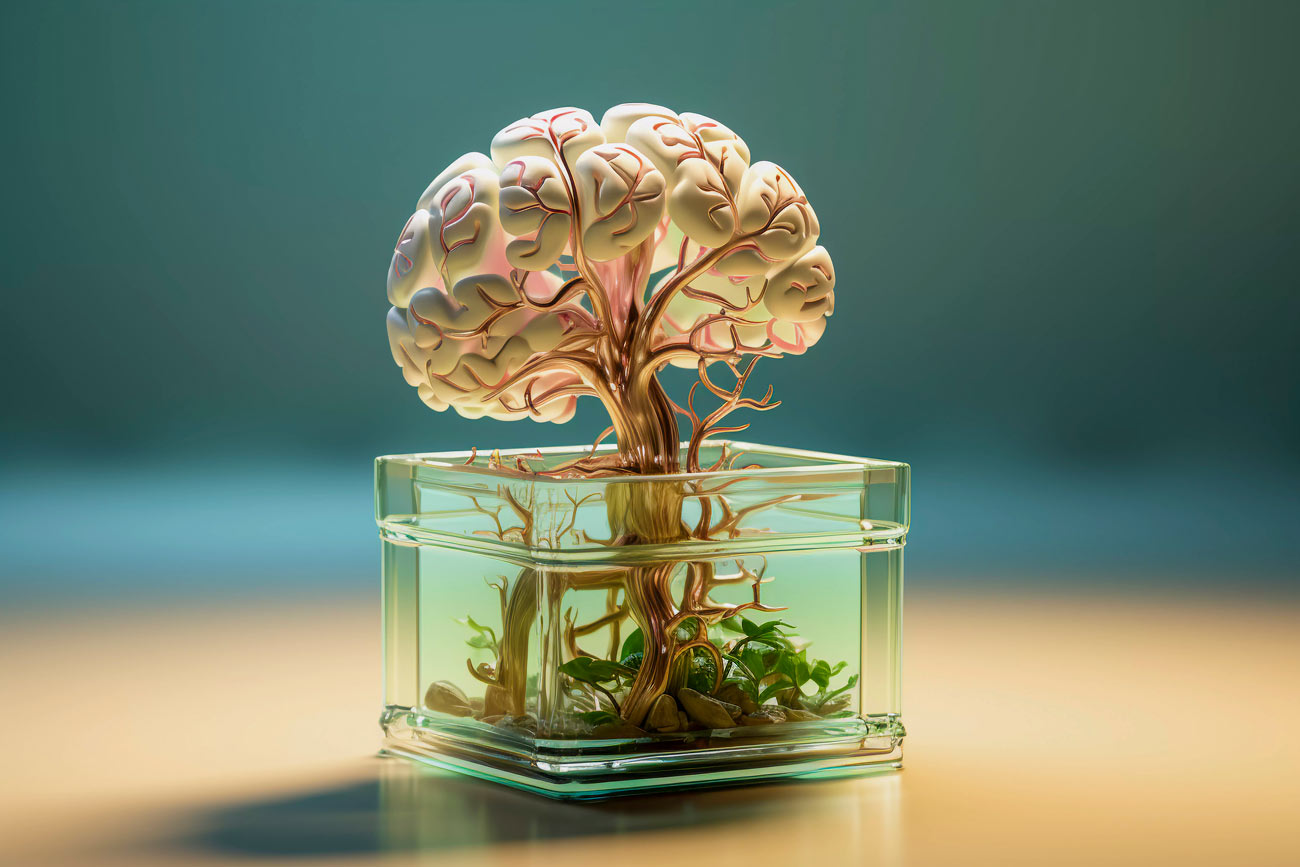Psychological rehabilitation centers against the effects of violence
Therapy sessions to bring patients back to life!

During wars, fighters die on the front lines, while others in their homes or neighborhoods due to horrific bombing and destruction. People see these victims and often overlook traumatized victims of war, who may be far from the front lines, but are actually severely affected by the acts of war, the destruction, the loss of loved ones and the pervasive fear everywhere. This reality often necessitates psychological and moral rehabilitation to enable the affected individuals to overcome their crises and help them achieve social and professional reintegration. Treating these people is specifically done by psychological rehabilitation centers, especially the ones specializing in post-war traumas.
War has an extremely negative impact on people’s mental health and well-being, whether they are soldiers or peaceful people whose simple lives have turned into tragedies because of war, affecting their functioning, mood and social participation. Therefore, the international psychological community is actively working to assist military personnel, war veterans, the families of fallen heroes, in their psychological adaptation to life beyond the front lines and help them overcome the impact of war, conflicts and stressful environments.
Goals, Endeavors and Hopes
People with psychological concerns sometimes need help in different aspects of their lives, including their work and living environments, social and educational situations. Psychosocial rehabilitation can help these individuals manage their symptoms and improve their performance. Today, this type of treatment both in theory and practice has become more widespread and more popular among people.
Psychosocial rehabilitation is a treatment approach designed to help improve the lives of people with mental illness. Its goal is to teach them emotional, cognitive, and social skills to help them live and work in their communities as independently as possible.
Since the mid-twentieth century, the approach used to treat psychological and mental health issues has changed significantly and led to shifting from traditional institutions to modern rehabilitation centers that have adopted more advanced methods for dealing with such cases. Today, there is a strong focus on helping people with mental health conditions. Psychosocial rehabilitation strives to help reduce prejudice and foster social inclusion. Full recovery is frequently the goal, but it is seen as a process rather than an outcome.
Psychosocial rehabilitation is centered on the person’s potential for recovery. It is focused on providing empowerment, social inclusion, support and coping skills. Everyone’s journey is individual and unique, and psychosocial rehabilitation can help people with mental illness find meaning, hope, and growth no matter their abilities or the effects of their condition.
Regardless of what form psychosocial services take, core goals include helping people feel:
- Empowered: Each individual needs to feel that they are able to set their own goals and have the power and autonomy to pursue those aims.
- Hopeful: People may be left feeling demoralized as a result of their condition. Rehabilitation focuses on helping clients feel hopeful about the future.
- Skilled: Rehabilitation aims to teach people skills to help them manage their condition and live the life they want to live. This includes life skills, work skills, social skills, and others.
- Supported: Mental health professionals offer support and help clients build relationships and social connections in their community.
Effective rehabilitation involves a comprehensive plan that addresses the patient’s life and functioning. Rather than simply focusing on areas of weakness, psychosocial rehabilitation focuses on empowering clients and building on their existing capabilities. These abilities help form a foundation upon which other important life skills can be developed through observation, modeling, education and practice.
Some specific areas that psychosocial rehabilitation might address include skills, training, and experiences designed to boost resilience and mental toughness, problem-solving ability and social skills.
More centers and modern approaches
Social skills and interpersonal functioning are important parts of psychosocial rehabilitation. Skills training may focus on activities designed to help clients better function in their social worlds, including family, work, school, friendships and romance.
This is accomplished by teaching skills related to emotional understanding, interpersonal problem-solving, verbal and conversational abilities and nonverbal communication.
A study of patients with schizophrenia and affective disorders found that psychosocial rehabilitation was linked to significant benefits in a variety of areas, including family relations, communication, community participation, self-care, money management, transportation, and vocational abilities.
Research has also shown that psychosocial rehabilitation can be helpful for improving a client’s well-being and outlook. In one study published in Research on Social Work Practice, 78% of children with serious emotional disturbances showed significant improvements in psychological symptoms and psychosocial functioning after 13 months of psychosocial rehabilitation.
In order to shed more light on the victims of wars, “Hospitals” magazine conducted a research and addressed the world’s latest issues. It also highlighted the role of psychosocial rehabilitation centers in helping victims of war and conflict overcome their psychological impact. These include, but are not limited to, Ukraine, Uganda, Congo, and international rehabilitation centers in Denmark.
Ukraine
Psychologists from the Community Center for Psychological Support, have been actively engaged in the psychological rehabilitation of Ukrainians affected by the war since June 2022. International psychological rehabilitation projects are also being implemented in collaboration with psychologists from leading educational institutions in the United States, namely Columbia University Teachers College and The Neuropsychology Center of Louisiana.
One of these projects is the “Colors of Life” project, during which psychologists from the Community Center for Psychological Support conducted art therapy sessions and psychological consultations for veterans, military personnel, and their relatives.
“During the period of full-scale war, the number of projects involving psychological rehabilitation using art therapy methods has significantly increased. We are observing positive results from our work – changes in the psychological state of our clients that occur after just a few sessions. They begin to smile, joke and open up in new ways, their condition stabilizes,” says Oleksandr Zharkov, head of the group of psychologists and co-founder of the Community Center for Psychological Support.
These centers are equipped with state-of-the-art technologies such as virtual reality and robots, providing a multi-dimensional approach to rehabilitation. The primary goal is to help people affected by conflict and war to rebuild their lives with hope and dignity. But even post-war, many Ukrainians will continue their personal struggle, a struggle for life, Zharkov said. According to the analysis of home psychologists, about 40% of Ukrainians will suffer from post-traumatic stress disorder due to the war.
Uganda
The mental state of adolescents exposed to war in Uganda have become quite disturbing. Therefore, it was necessary to find appropriate methods for rehabilitation. Reintegration after war brings with it enormous challenges. One such challenge is to find appropriate methods of rehabilitation during the reintegration process, especially for formerly abducted adolescents exposed to war events who have experienced psychological distress.
In a cross-sectional design, 294 adolescents aged 12 to 19 at three rehabilitation centers participated in the study. Adolescents were exposed to disquieting war events and participated in dreadful atrocities. Consequently, many were psychologically distressed with unhealthy mental states that needed cleansing according to the native Acholi traditional practices of reconciliation and reintegration.
The experience of torture explained between 26 to 37 per cent of the variance in symptoms of post-traumatic stress.
The challenge for clinicians is to employ a holistic approach to handle survivors of torture by treating not only the physical complaints but also the psychological symptoms. Psychological symptoms may present as somatic complaints. These conditions may have long-term consequences, just like physical complaints. At the height of the conflict, the rehabilitation center facilitated the recovery of more than 18,000 people.
Congo
“Invisible Children” partnered with Congolese leaders and international rehabilitation experts, including The Commission Diocésaine Justice et Paix (CDJP) and Sponsoring Children Uganda, to establish Centre Elikya in Dungu, DR Congo.
The program was run by professionally-trained Congolese rehabilitation specialists and equipped to serve up to 150 children at any given time. It was designed to serve children for six months before they are reunited with their families, preparing children for successful reintegration into society by seeking to restore their mental health, equipping them to return to school, or, if beyond school age, helping them develop a marketable skill that can be used in the workplace.
Most of the activities were focused on teaching children to cope with and understand their trauma. Since its inception in May 2012, Centre Elikya has hosted 200 LRA-affected children from DR Congo in rehabilitation and reintegration programs.
Denmark
In Denmark the activity was broader and non-local, as DIGNITY works to ensure that torture survivors worldwide have access to professional rehabilitation. In Denmark, we run a clinic for traumatized refugees and their families. Internationally, we are working with local partners in a number of countries to facilitate help to traumatized women and men in vulnerable and poor areas.
Treatment at the center is not only limited to traumatized refugees and their families, but also improves their health in order to increase their opportunities to find jobs and live better lives. The treatment also has a positive effect on the children and their opportunities to thrive in kindergarten, school and leisure activities. Violence may occur in prisons, and not only as a result of bombing and intense battles.
Health is Key
Within the framework of psychosocial rehabilitation, most of the affected individuals or those in need of rehabilitation are poor or do not have the means to receive treatment. Hence the importance of the presence of free or semi-free treatment centers supported by governments or local/international organizations and associations, ensuring that everyone has access to treatment.
During the period of total war, the number of projects involving psychological rehabilitation increased significantly. Observers notice positive outcomes from their work, as changes in the psychological state of the patients occur after only a few sessions.
Fear, terror, helplessness and rage; for soldiers and civilians alike, the psychological and mental costs of war are staggering. Demonstrating wide-ranging knowledge of the vulnerabilities and resilience of war survivors, the collaborators on Trauma Rehabilitation after War and Conflict analyze successful rehabilitative processes and intervention programs in conflict-affected areas of the world.
In summary, as specialists say, “health is a key element without which a person cannot live.” It is worth noting that physical and mental health are equally important, as both are fundamentally linked. One cannot function to its optimum capacity if the other has been left uncared for.














